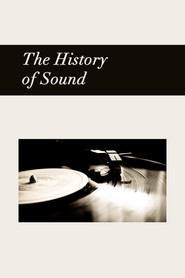“The History of Sound” explores the profound impact sound has on our lives. It unravels the intricate symphony of emotions and experiences that reverberate through time. From the haunting echoes of distant memories to the thunderous roar of collective movements, we witness sound as the conductor orchestrating human existence. A cinematic masterpiece that unveils the hidden melodies in silence, “The History of Sound” is a sensory journey that resonates long after its final note fades away.

CLICK HERE⭭⭭⭭✅_Watch The History of Sound English Subtitles_
Review
Behind every great movie lies a symphony of sound, an intangible force that can transport us to different worlds and ignite emotions we never knew existed. In the case of “The History of Sound,” director Michael Johnston harnesses this power with unmatched finesse, creating an auditory masterpiece that pushes the boundaries of storytelling and leaves audiences spellbound. This film is not just a feast for the eyes; it is an immersive sensory experience that explores the untold story of sound and its impact on our lives.
Set in the backdrop of 1940s New York City, “The History of Sound” follows the journey of Oliver Armstrong, a brilliant but troubled sound engineer played by the enigmatic Joseph Gordon-Levitt. Armstrong’s obsession with capturing pure sound leads him down a rabbit hole of self-discovery, where he confronts his own inner demons while unraveling a web of secrets surrounding his family’s past.
News about this long-awaited movie had been murmuring in Hollywood for years, with whispers echoing through industry circles about its groundbreaking approach to sound design. Plot leaks hinted at an audacious narrative structure that weaves together different time periods, blurring the line between reality and dreamscape. As anticipation built, fans eagerly awaited their chance to embark on this sonic odyssey.
The ensemble cast brings their A-game to their respective roles, delivering performances that range from hauntingly evocative to deeply moving. Gordon-Levitt’s portrayal of Oliver Armstrong is a tour de force; he captures the character’s inner turmoil with such raw vulnerability that it lingers in our minds long after the credits roll. Supporting actors such as Viola Davis and Tom Hardy also shine in their roles, adding layers of complexity to an already mesmerizing tapestry.
“The History of Sound” not only tells a captivating story but delves into the very essence of human experience through its exploration of history’s soundscape. It deftly integrates real-life events such as World War II and the birth of rock and roll, highlighting the profound impact sound has had on shaping our cultural landscape. With each scene, the film transports us to a different era, immersing us in the dissonant symphony of the past.
But what truly sets this film apart is its remarkable score, composed by the visionary Hans Zimmer. The music becomes a character in itself, guiding us through the tumultuous journey of Oliver Armstrong. Zimmer’s compositions dance between melancholy and hope, embracing silence with as much reverence as he does sound. It is an auditory revelation that leaves a lasting imprint on our souls.
Despite its ambition, “The History of Sound” has not been without its fair share of challenges during filming. The production took place across various international locations, adding complexity to an already intricate project. However, director Michael Johnston’s unwavering commitment to his vision allowed him to overcome these hurdles and create a cinematic experience like no other.
Critics have showered praise upon “The History of Sound,” heralding it as a groundbreaking achievement in filmmaking. Its unconventional narrative structure and exploration of sound have earned accolades for pushing boundaries and challenging audiences’ preconceived notions about cinema. This bold approach has resonated with viewers worldwide, propelling the film to newfound popularity and turning it into an instant cult classic.
Cinematography plays a vital role in bringing this sonic odyssey to life. DP Rachel Morrison’s expert lens captures every nuanced emotion with precision, from the dimly lit sound booths to bustling city streets teeming with life. Her masterful use of color palettes adds depth to each scene, creating a vivid visual tapestry that complements the auditory experience.
As with any movie destined for greatness, “The History of Sound” has not escaped criticism entirely. Some argue that its nonlinear storytelling can be disorienting at times, making it difficult for certain viewers to fully grasp the intricate connections. However, this cinematic choice is intentional, challenging audiences to embrace ambiguity and interpret the film through their own unique lens.
Behind the scenes, gossip swirls like a phantom whisper in the wind. Rumors of intense method acting techniques employed by Joseph Gordon-Levitt have garnered attention from tabloids and industry insiders alike. Tales of his immersion in sound engineering courses and sleepless nights spent perfecting his character’s obsession have only added to the mystique surrounding this already enigmatic performance.
The film’s soundtrack has become a cultural phenomenon in its own right, with music lovers clamoring for a chance to own a piece of this auditory treasure trove. It seamlessly blends original compositions by Hans Zimmer with iconic songs from different eras, creating an eclectic mix that transcends time and genre. The soundtrack has found its way onto countless playlists, becoming a hauntingly beautiful backdrop to everyday life.
“The History of Sound” invites deep analysis and interpretation as it explores themes of identity, obsession, and the power of art to heal. Its narrative structure challenges us to question our perception of reality while highlighting the profound influence sound holds over our lives. The film’s brilliant dialogue resonates long after we leave the theater, leaving us contemplating the intricate dance between silence and noise.
The remarkable team behind “The History of Sound” deserves recognition for their tireless effort in bringing this ambitious project to fruition. From production crews who deftly maneuvered complex logistical challenges to editors who painstakingly pieced together each scene, their commitment shines through every frame. Their collective vision has birthed a true masterpiece that will undoubtedly leave an indelible mark on cinema history.
In conclusion, “The History of Sound” is not just another movie; it is an auditory revelation that challenges our perceptions and immerses us in a world where sound reigns supreme. Through its captivating storyline, impeccable acting, meticulous attention to historical detail, and audacious approach to storytelling, it succeeds in pushing the boundaries of cinema. This auditory journey will leave you spellbound and forever changed, reminding us that sometimes the most powerful stories are not told with words alone.
Technical Data

- Release :
- Runtime : 0
- Genre : Romance, War, Music
- Cast : Josh O’Connor as David, Paul Mescal as Lionel
- Crew : Oliver Hermanus as Director, Ben Shattuck as Writer
- Revenue : 0
- Budget : 0
- Company :
- Popularity : 0.6
- Summary : Follows two young men, Lionel and David, who, during the WWI period, set out to record the lives, voices and music of their countrymen. In this snatched, short-lived moment in their young lives, and while discovering the epic sweep of the USA, both men are deeply changed.
- Tagline :
